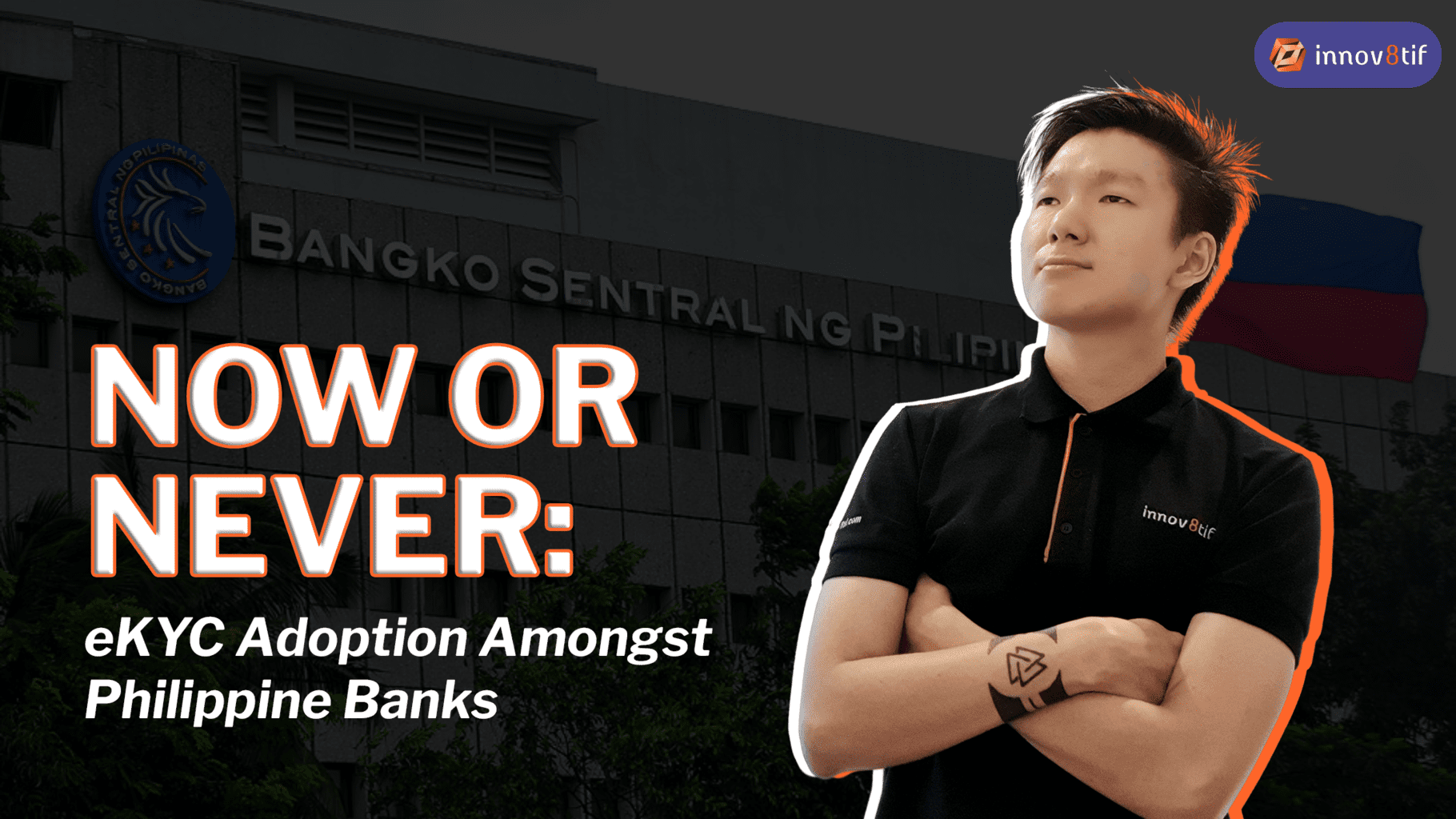The Philippine’s central bank, Bangko Sentral ng Pilipinas’ (BSP), is in the midst of updating and enhancing the rules on electronic know-your-customer (eKYC) procedures to improve customer identification and verification amongst banks and non-banks. It uses the country’s national ID as an independent source of proving one’s identity through identity verification.
According to the proposed requirements, all financial institutions will be obligated to digitise customer records in accordance with existing BSP and Anti-Money Laundering Council regulations. This is on top of current processes, which include acquiring photocopy or scanned identification documents, manual recording of information, and biometrics gathering for the purpose of document verification.
What does this mean for PH Banks?
This timely update to existing regulations serves one key purpose—for banks to verify that the person claiming his or her identity is the same person who initially enrolled for the bank’s services, minimising fraud and money laundering risk. The new emphasis on customer due diligence (CDD) uses multiple authentication factors through eKYC processes.
Based on the draft circular, eKYC processes must include robust identity checks— involving the collection, verification and authentication of identity evidence and information provided by each banking customer. It highlights that eKYC services should have the same standards as those on a face-to-face basis, contain the appropriate risk management processes and include authentication and identity lifecycle management.
Through CDD implementation, factors such as the client, product, delivery channels, geographical location, amongst other factors, are closely monitored when suspicious activities are detected.
Customer identification has been a key element of eKYC standards, and regulations have been tweaked several times in recent years. Last year, the BSP’s Monetary Board eased the requirement rules for valid IDs for customer onboarding and transactions while Luzon and other areas were under lockdown, or during the period of enhanced community quarantine.
Local banks may find it difficult to comply with these regularly updated regulations, tweaking internal processes and retraining staff members. However, financial inclusivity is the goal here, as people could not enter physical bank premises to access banking services during the pandemic. The temporary relaxation of KYC procedures has helped facilitate the delivery of welfare funds to qualified beneficiaries who have no available valid IDs or transactional banking accounts.
eKYC goes beyond regulatory compliance
Some banks may view the e KYC system as a cost centre, but it actually vastly improves the customer experience and the bank’s bottom line. EKYC actually enables banks to offer products and services 24 hours a day, seven days a week, through secure and encrypted technologies. Customers no longer need to take time to physically visit a bank and can make any kind of transaction through their dedicated digital banking services.
eKYC also enables people to access banks digitally anytime, anywhere, even if they are not in the country. Customers today expect to have banking services easily accessible at their fingertips through their smartphones, creating a seamless and favourable customer experience all year round.
KYC processes are traditionally done manually, through teams of compliance and banking employees. Inadvertently, eKYC will result in cost optimisation as human capital is no longer needed to carry out mundane, low-valued tasks and processes, most of which can be automated. This frees up human resources to be upskilled into areas that are more difficult to automate, such as looking into transactions flagged as potentially fraudulent, maximising the capabilities of the institution’s workforce.
Why Innov8tif’s EMAS eKYC fits the bill
Innov8tif specialises in ID Assurance solutions, which includes our suite of eKYC products—EMAS eKYC. Our solution is readily available and is tailored to suit the ASEAN market.
For instance, our proprietary solution, OkayDoc, is built on top of ASEAN identification (ID) cards and documents. OkayDoc helps reduce the time needed for ID authentication by automatically performing tests on each submitted ID card image. The ID is checked for authenticity, such as tampering and microprint detection, which frees reviewers to focus on preventing identity theft attempts, such as vetting potentially fraudulent sign-up attempts.
Each banking institution is unique in its ways of handling and managing their IT infrastructure. Some still rely on legacy on-premise architecture, while some have already migrated to the cloud. Innov8tif has had experience with these various deployment models and is able to integrate EMAS eKYC to ensure a seamless remote identity verification process according to the client’s requirements. Beyond just deployment, we also provide after-service support, helping iron out kinks and bugs, and quickly addressing any possible technical issues if and when they arise.
With more than a decade of presence in the region, Innov8tif also has the necessary regional expertise on each country’s industry needs and regulatory practices. Client confidence is a key priority, and we have taken extensive steps to address them. Our company complies with global ISO standards and implements strict data management policies to ensure the security and sovereignty of our client’s data.
Interested to learn more about our eKYC products? Drop us a quick e-mail at [email protected] or sign up to our external newsletter below!




